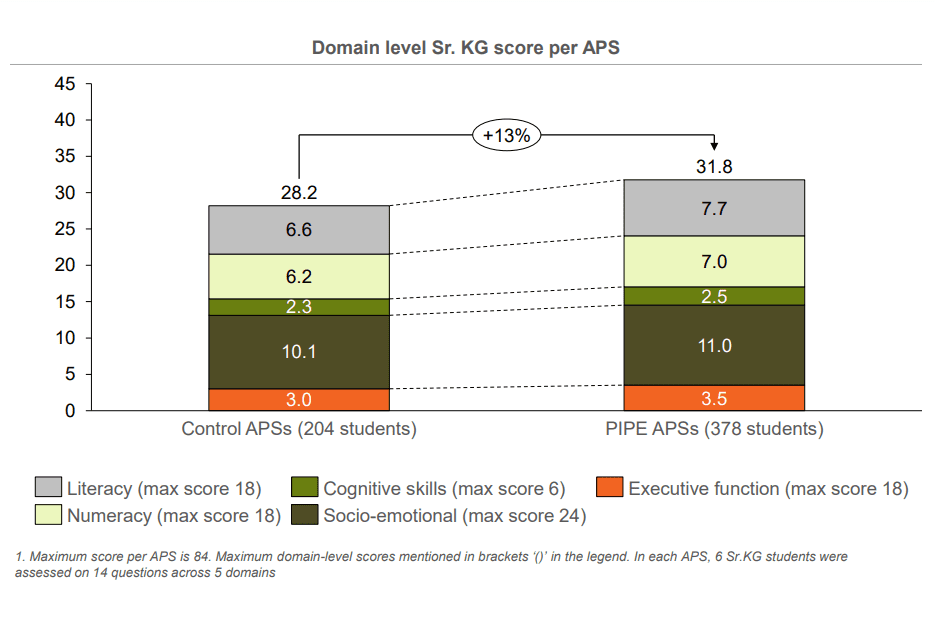Impact Assessment Report 2022-23
To determine PIPE’s impact, an independent assessment of 98 affordable private schools with PIPE partner solutions (‘PIPE APSs’), and 38 affordable private schools with no activity-based learning intervention (‘Control APSs’) was conducted in January and February 2023.

Independent assessment
An independent assessment of 958 children in 136 affordable private schools (APSs) was conducted by RSB Insights and Analytics. APSs are schools that typically charge fees of approximately INR 28,500 (~USD 356) per child per annum, and typically provide education up to grade 10. All schools for evaluation were chosen randomly and (i) were private schools that are not government-aided, trust aided or trust-funded; (ii) operate pre-primary to at least grade 5 (ages 3-11); (iii) charge all-inclusive annual fees less than INR 31,300 (~USD 391) per child per annum.
Representative sample
The 136 APSs selected were representative of a typical APS. Control APSs were chosen from the same neighborhoods as PIPE APSs.
Key findings
- Sr. KG children in PIPE APSs scored 13% higher on learning outcomes compared to control APSs. Specifically, children in PIPE APSs performed better than those in control APSs on all five domains that learning outcomes are tested on[2]
- Compared to 2018, Sr. KG scores in PIPE APSs improved by 33% compared to 2018, although scores for 2023 and 2020 remained similar[3]
- Sr. KG classroom scores in PIPE APSs were 51% higher compared to control APSs, and were driven by effective use of materials and classroom space by teachers, and positive staff-child interactions[4]
- Grade 2 children in PIPE APSs scored similar to control APSs on learning outcomes[5]
- Compared to 2019, grade 2 scores in PIPE APSs improved by 18%, although 2023 scores were lower than 2020[6]
To learn more about the results from the assessment click here.
To get a copy of the assessment tool with instructions and supporting materials, click here.
